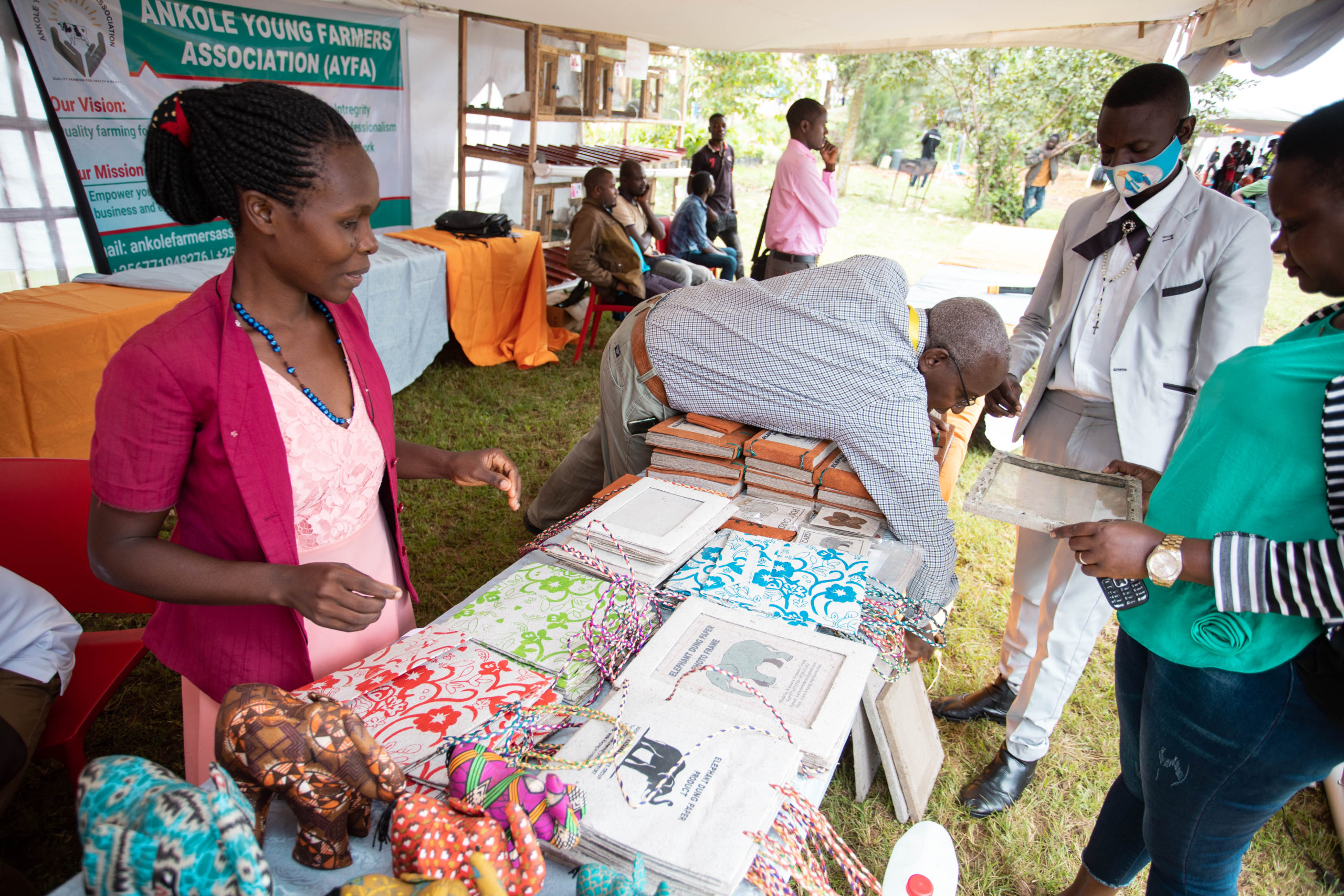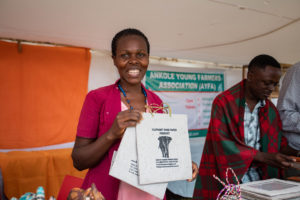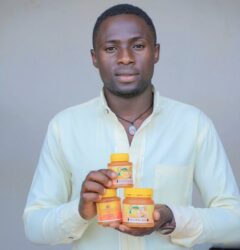07 Apr

A buzz of excitement and intrigue hovered in the air as hundreds of agriculture and tourism enthusiasts made their rounds at the various stalls of the agritourism expo organized by The Innovation Village Mbarara. Right from farm produce that has been propagated to be commercially lucrative to innovative machines that make agriculture easier, the expo was a great window into the agricultural economy of the southwestern region.
Wealthy with resources that make a haven for every form of agriculture, the expo was an opportunity for the region to demonstrate how its denizens are utilizing the land and climate to become an Eden for agriculture and even further integrate this with tourism.
The intersection of tourism and agriculture was reflected profoundly in one of the stalls at the expo. At this stall owned by Katara Women’s Poverty Alleviation Group Women’s, one learned through their paper merchandise about the agricultural and wildlife conflict around Queen Elizabeth National Park.
A basin of elephant dung is one of the items on display at the group’s stall and so are various handcrafts made of paper. Maria Goretti Ahuriira, the chairperson of the group tells the story behind the craftwork.
She hails from Bunyaruguru, a land bordering Queen Elizabeth Park which is home to 95 species of mammals and over 500 bird species.

Katara Women’s Poverty Alleviation Group began as an initiative of widows who lost spouses to wild animals while poaching on national park grounds. The Uganda Wildlife Authority (UWA) compensated the widows with farmland from which they could eke a living. Due to the farmland’s proximity to the national park, a conflict within the community and wildlife ensued. Elephants that were looking to forage wound up in the gardens of the women, helping themselves to the plantain, corn, sugarcane, potato and cassava vines.
It became a losing battle for a while for the farmers until they regrouped to discuss how to take advantage of the situation.
Having learned to do paper from banana fibers in the past, they picked up the idea of making paper out of the large mounds of dung left behind by the foraging elephants. They got the idea after running out of fibers from the bananas that were continuously destroyed by the elephants.
Through experimenting they found that they could indeed extract paper from the elephant dung and they began to make a variation of paper products including photo albums, post cards, photo frames, gift bags among other things. These products were sold to tourists and as the income began coming in, the women were able to form a savings and investment group that has supported their families.
The farmers have since resumed tilling the land. They found an ecofriendly solution to keeping the elephants away by surrounding their gardens with beehives. A memorandum of understanding between Uganda Wildlife Authority and the farmers enables them to collect the elephant dung to support their paper making industry.
This was among many other brilliant exhibitions at The Agri-Tourism Expo spanning three days to March 31, 2021.
The expo was part of The Innovation Village’s drive to highlight opportunities available in the two sectors. It was intended to spark different ideas that make tourism both meaningful and adventurous. Some Conversations, though limitless, rotated around apiculture, aqua farming, horticulture, viticulture and floriculture.
With, both agriculture and tourism operating in silos. The expo intended to create more jobs for women and youth, develop new markets and foster meaningful partnerships along the supply chain in the different sectors.
At the panel discussions, there was a resounding agreement on the fact that tourism is still mostly elitist and we need to change the narrative. Another recommendation rotated around tapping into the wealth in Uganda given the diversity in climates and botany.
The three-day expo retained its upbeat spirit of satisfying the curiosity of the guests, a feat that could only be pulled off by the powerful partners among them Excel Hort Consult Agribusiness Incubator Limited (EHCAI), Uganda Tourism Board and The Innovation Village.










Recent Comments